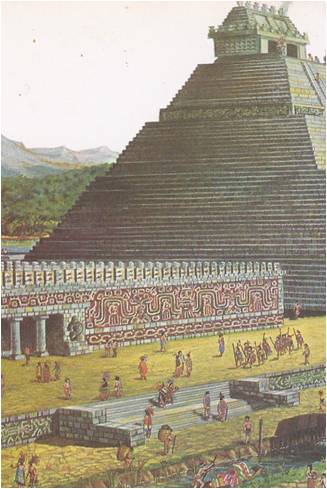WHEN THE MARQUIS DE LAFAYETTE returned to France in 1782, after taking part in the American Revolution, he was hailed as a popular hero. It was pleasant to be welcomed as a champion of liberty, but he had been in America so long that he was beginning to see his own country as an American might see it and he was troubled. France was one of the largest and richest countries in Europe and yet the wealth of the nation was in the hands of a few, while the great majority of the people had almost nothing. He found a …
Read More »The Final Break 1776
The fog was lifting over New York early on the morning of June 29, 1776, when a man named Daniel McCurtin happened to glance out over the bay. At first he saw nothing but mist hanging low over the water then suddenly he blinked and stared in amazement. Later he tried to describe the scene. He wrote that he had “spied as I peeped out the Bay something resembling a wood of pine trees trimmed. I declare, at my noticing this, that I could not believe my eyes, but keeping my eyes fixed at the very spot, judge you of …
Read More »A Divided Country 1776
One chilly morning in April, General Howe stepped out of his Boston headquarters and stared in amazement at a hill called Dorchester Heights, to the south of the city. It had been fortified during the night by George Washington’s rebel army. Strong breastworks of ice blocks and brown earth ran along the crest of the bill. Above the steepest slopes, barrels filled with rocks stood balanced, ready to be sent tumbling down the hill in the path of attacking troops. Studying the hill through his glass, Howe could make out several companies of riflemen and some units with muskets. What …
Read More »War Begins on Lexington Green 1775
On the evening of April 18, 1775, Paul Revere quietly made his way through the dark streets of Boston to the Charles River. At the river’s edge he hid in the shadows, watching and waiting. He kept a sharp lookout for British patrols. Spies had brought the patriots word that the British were to launch a surprise attack; Revere, William Dawes and other members of the Sons of Liberty had made careful plans to warn the countryside. There could be no doubt that something was about to happen. Several days earlier, eight hundred of the best troops stationed in Boston …
Read More »The Continental Congress 1774
When Samuel Adams, his cousin John Adams and the rest of the delegates from Massachusetts arrived in Philadelphia, they found themselves very unpopular. Cousin John complained that he was avoided as if he had some sort of contagious disease. The delegates from other colonies looked upon the men from Massachusetts as radicals and did not like their wild ideas about protecting American rights with force, if necessary. Patrick Henry of Virginia made a speech pointing out that it was no longer possible for any of the colonies to stand alone. They had to unite, to work together with other colonies …
Read More »The Boston Tea Party 1773 -1774
Due to the taxes on tea, many of the colonists began drinking coffee or cocoa, or bought tea smuggled in from Holland. Within a few years, the British tea trade with the colonists dropped from 900,000 pounds to 237,000 pounds and in England the warehouses of the East India Company were filled to overflowing. The East India Company was Britain’s largest and most important trading company and to save it, Parliament passed the Tea Act. The East India Company was given a monopoly on tea trade with the colonies — that is, it was the only company allowed to sell …
Read More »The Stamp Act, 1765 – 1772
Another unpopular step England took after the war was to reorganize her defense system in the colonies. The French and Indian War had proved to the British that the colonies could not be depended upon to defend themselves. Some new system had to be worked out in North America, to defend not only the colonies, but also Canada, Florida and the wilderness east of the Mississippi. England decided to leave this task to a standing army of ten thousand British redcoats. Such an army would cost a great deal of money. Taxpayers in England were already paying very high taxes …
Read More »Adventures in the New World 1519 – 1620
“I DID NOT come to till the soil like a peasant,” said Hernando Cortez. “I came to find gold.” His words echoed the thoughts of almost every Spaniard in the New World. The discovery of the sea route to the West had set off a great treasure hunt. Colonizing and slaughtering, building and plundering, the gold-hungry Spaniards won a Spanish Empire of the West. Conquistadores‚ they were called — the conquerors. None of the treasure-hunters was more cunning or ambitious than Hernando Cortez‚ who came to the island of Hispaniola in 1504. It was not until 1519 that the governor …
Read More »Venice, City in the Sea 1350 – 1590
The houses of Venice are “like sea-birds half on sea and half on land,” said Cassiodorus. An officer of a king of the Goths, Cassiodorus saw Venice in 537. It was a little settlement of huts built on the mud-flats in an out-of-the-way lagoon. Its people were refugees‚ Italians who had been driven from their homes by a horde of barbaric invaders. They were safe in the lagoon, for no stranger could navigate the treacherous channels. For the sake of safety, they were content with comforts that were simple at best. “In this place,” Cassiodorus said, “rich and poor are …
Read More »







